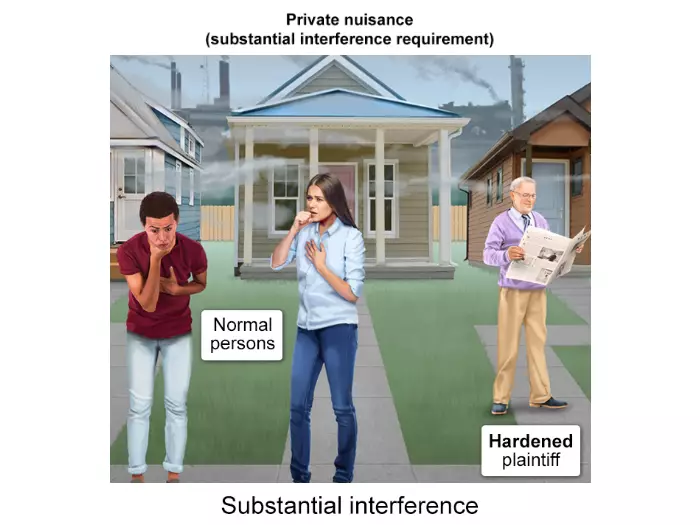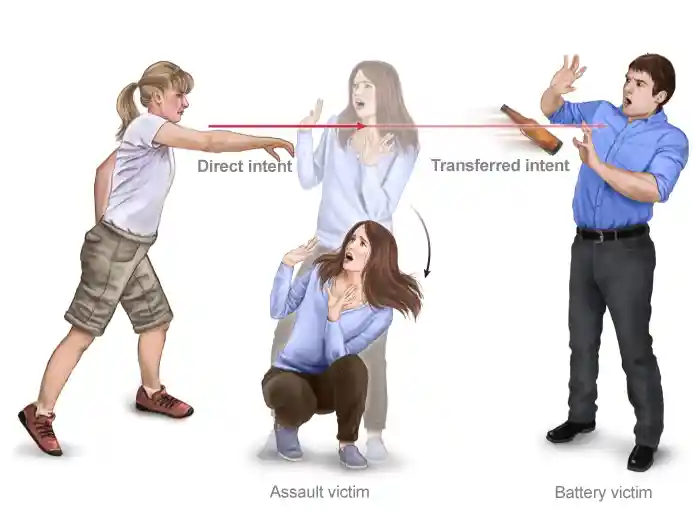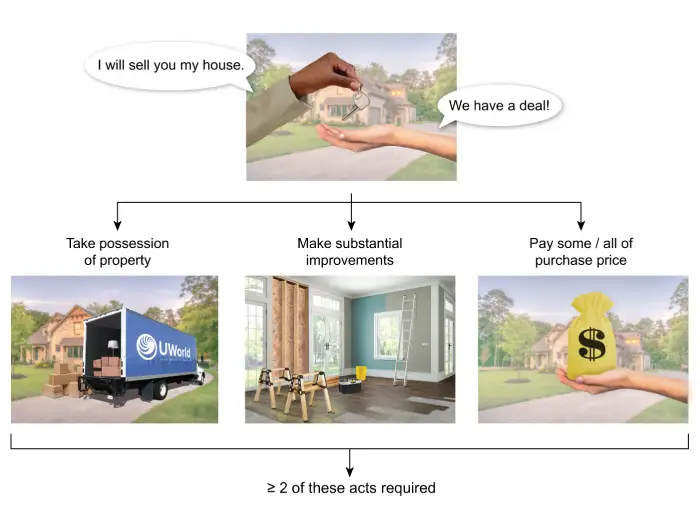Everything You Need To Know About the Ohio Bar Exam
Law graduates seeking licensure to practice law in Ohio must take and pass the Ohio Bar Exam. This article will give you details about the Ohio Bar Exam so that you know what to expect as you prepare for exam day and bar admission.
Exam Dates and Administration
As of June 1, 2020, the Supreme Court of Ohio has replaced its 12 Ohio-specific essay questions with the Multistate Essay Examination (MEE), making Ohio a fully Uniform Bar Examination (UBE) jurisdiction. The UBE features the Multistate Performance Test (MPT), the Multistate Bar Examination (MBE), and the MEE.
About the UBE:
The UBE is administered, graded, and scored across all UBE member jurisdictions. This means that applicants can take and pass a single exam and transfer earned scores to other (member) jurisdictions where they wish to practice law, so long as they meet that jurisdiction’s passing-score requirements.
The exam evaluates a candidate’s readiness to practice law in any jurisdiction by assessing competency in general law principles, factual analysis, communication skills, and legal analysis.
Each year, the UBE takes place on the last Tuesday and Wednesday of February and July.
- On day one, candidates take the MPT in the morning and the MEE in the afternoon. Each session lasts three hours.
- On day two, candidates have a total of six hours to complete the MBE in two 3-hour sessions (morning and afternoon).
UBE Schedule Summary:
| Exam Session | Tuesday Morning | Tuesday Evening | Wednesday Morning | Wednesday Evening |
| Exam Component | MPT | MEE | MBE | MBE |
| Format & Hours | 2 closed-universe questions, 3 hours (1.5 hours per question) | 6 essays, 3 hours | 100 questions, 3 hours | 100 questions, 3 hours |



Exam Registration
In Ohio, candidates must register to take the bar exam by November 15 of their 2L year. Failing to do so will trigger $200 in late fees. See the table below for relevant exam dates and filing fees:
| Examination Dates |
July 26-27, 2022 (Tuesday & Wednesday) |
| Examination Location |
TBD |
| Examination Fee |
• $75 (standard application)
• $275 (late registration) |
| Filing Deadline |
• Timely deadline: April 1st, 2022
• Late application deadline: May 10th, 2022 |
Structure & Subjects
The MPT and MEE together account for 50% of your UBE score (30% for the MEE and 20% for the MPT). The MBE accounts for the remaining 50%. The MBE and MEE cover federal law, not state-specific law; the MPT tests fundamental lawyering skills, not substantive knowledge. To pass the Ohio Bar Exam, you must score 270 or more.
The MPT consists of closed-universe (i.e., no knowledge of real-world law required) practical questions with instructions, factual data, cases, statutes, and other reference material supplied by the bar examiners. Candidates will address two cases presenting simulated real-life scenarios to demonstrate their lawyering skills, using only the materials provided by the examiners. Each case is assessed on a 6-point scale, with 6 being the highest possible score and 0 the lowest.
The MEE tests candidates via six 30-minute essays. Each essay is assessed on a 6-point scale, with 6 being the highest possible score and 0 the lowest. The MEE may test the following subjects, as well as any of the subjects also tested on the MBE:
- Business Associations (Agency and Partnerships; Corporations and Limited Liability Companies)
- Conflict of Laws
- Family Law
- Trusts and Estates (Decedents' Estates; Trusts and Future Interests)
- Article 9 (Secured Transactions) of the Uniform Commercial Code (UCC)
The MBE is administered in two 3-hour sessions on Wednesday (Day 2) of the bar exam. It is scored on a 200-point scale and contains 200 multiple-choice questions spanning the following subjects, broken down into 25 questions per subject (note that there are also 25 unscored “test questions” that could test any of the following subjects):
- Contracts
- Constitutional Law
- Criminal Law and Procedure
- Civil Procedure
- Evidence
- Real Property
- Torts
Note: Before you can practice law in Ohio, you must also pass the Multistate Professional Responsibility Examination (MPRE). The MPRE features 60 multiple-choice questions administered over two hours. Check out our article, About the MPRE, to learn more about this mandatory exam.

What Makes the Ohio Bar Exam Unique?
In addition to scoring at least 270 on the UBE, applicants must pass the jurisdiction-specific component for Ohio, known as the Ohio Law Component (OLC). This requirement applies to both applicants taking the bar exam in Ohio and those transferring a UBE score from another jurisdiction.
The OLC is an online, open-book, multiple-choice exam on Ohio-specific law. The examiners provide applicants with Ohio-specific outlines to prepare for the OLC. Applicants must score 80 percent or higher to pass the OLC and be admitted into the Ohio Bar.
Character & Fitness
To become licensed in Ohio, bar applicants must meet the requirements for the Character & Fitness (C&F) component of the bar admissions process. The C&F component involves passing a background check to ensure that applicants are morally and ethically fit to be admitted into the bar, and being interviewed by currently licensed attorneys.
The C&F application is separate from and has different filing deadlines than the bar exam application. It is a detailed and time-consuming application, so plan accordingly.
Costs and Fees
| Expense | Application to Register as a Candidate for Admission | National Council of Bar Examiners | MPRE | Bar Examination | MPT | Laptop |
| Cost | $75 | $225 | $95 | $330 | $28 | $121 |
| Late Fee | $275 if not filed by 11/15 of the second year of law school | $315 | $190 | $430 |
Source: The Supreme Court of Ohio Admissions Fee Schedule
Cost-Saving Options
No matter the jurisdiction, pursuing a legal education and applying to take the bar exam is expensive. For Ohio students, we recommend the following cost-saving options to help you with the fees associated with the Ohio Bar Exam:
- The Ohio State Bar Association (OSBA) offers various awards and scholarships to law students enrolled in Ohio law schools. For a complete list, check out the OSBA’s Awards & Scholarships web page.
- Students attending accredited law schools in Ohio should check with their university’s financial aid department for available scholarships and other resources.
- The American Bar Association (ABA) maintains a list of scholarships and financial aid on its website for various student groups.
Practice. Practice. Practice. See what the best practice questions truly look like.
Ohio Bar Exam FAQs
What is the Ohio Bar Exam pass rate over the last few years?
Pass rates for the Ohio Bar Exam have fluctuated over the years. The overall pass rate for the February 2021 Ohio Bar Examination was 54.3%. The February 2021 exam was Ohio’s inaugural full UBE and marked the highest pass rate for a February exam since 2016. Below are the pass rates (overall and first-time test takers) for the past three years:
| Year | Feb 2021 | Oct 2020 (postponed from July due to COVID-19) | February 2020 | July 2019 | February 2019 |
| Overall Pass Rate | 54.3% | 77.4% | 49.2% | 73.1% | 52.9% |
| First-Time Test Takers Pass Rate | 65.9% | 85.3% | 74% | 82% | 66% |
Source: Official Announcement of the Ohio Bar Examination Results
How much does it cost if I am unsuccessful on the Ohio Bar Exam and want to retake it?
Anyone wishing to retake the Ohio Bar Exam must submit the Re-Examination Application and pay the $452 application fee. If filing late, there is an additional $100 fee. If four examination administrations have passed since the last time a retaker attempted the Ohio Bar Exam, that applicant must resubmit all the applications and fees required for a first-time test taker along with the Re-Examination Application. Please contact the Office of Bar Admissions at the Supreme Court of Ohio with any questions at 614-387-9340.
How many times can I take the Ohio Bar Exam?
Ohio does not limit the number of times you can retake the Ohio Bar Exam.
What is the minimum passing UBE score for Ohio?
Does Ohio offer bar reciprocity with any other jurisdiction(s)?
Ohio’s admission without bar examination (or admission on motion) is not based on bar reciprocity. However, attorneys practicing law in another jurisdiction may be eligible for admission to the Ohio Bar without examination if and only if the Supreme Court approves their applications.
How does Ohio’s Admission Without Examination process work?
Ohio will accept admission on motion based on score transfer if the applicant:
- meets the general requirements for admission to practice law in Ohio;
- has passed a bar exam and been admitted as an attorney in some other state or the District of Columbia;
- has been practicing law full-time for at least 5 of the past 10 years immediately preceding the application for admission; and
- has not failed an Ohio bar exam.
All applicants must also have demonstrated that they possess the required character, fitness, and moral qualifications for admission as determined by the Board of Commissioners on Character and Fitness.
Can I transfer my Ohio UBE score to another jurisdiction?
Can I transfer my UBE score from another jurisdiction to Ohio?
Candidates wanting to practice in Ohio can transfer their UBE scores from other jurisdictions, provided they scored at least 270.
What is the time limit for accepting a transferred UBE score in Ohio (ie, maximum age of the UBE score)?
Ohio will accept UBE scores from other UBE states for five years post-examination. After five years, eligible attorneys from another state may apply for admission without taking the Ohio Bar Exam.
The chart below explains the latest date the Ohio Office of Bar Admissions will accept a UBE transfer score:
| Current Administration | UBE Score Obtained |
| July 2020 | February 2016 |
| February 2021 | February 2016 |
| July 2021 | July 2016 |
| February 2022 | February 2017 |
Source: UBE FAQ
Can I transfer my MBE score from another jurisdiction to Ohio?
No. Ohio does not accept MBE scores from other jurisdictions.
Can I transfer my Ohio MBE score to another jurisdiction?
Yes. If you wish to transfer an MBE score earned in Ohio to another jurisdiction that allows such transfers, you must complete, sign, and return a Request for MBE Score Transfer to the Ohio Office of Bar Admissions, along with a personal/cashier’s check or money order for $15 payable to the Supreme Court of Ohio.
When will Ohio release its Bar Exam results?
The Supreme Court of Ohio administers the state’s bar exam and typically releases the results on its website about 9-12 weeks after the test date.
Final Takeaways
Challenging though it might be, you can pass the Ohio Bar Examination with the right study plan and prep provider. However you choose to prepare for it, we wish you the best of luck with the Ohio Bar Exam.
Prepare with UWorld MBE and Themis Bar Review for the ultimate bar exam prep experience.
Raising the bar in bar prep
Pass the Bar With Confidence.
Pass the Bar With Confidence.
The ultimate MBE® supplement
Try UWorld’s MBE QBank’s
FREE 7 Day Trial.
No Credit Card Required